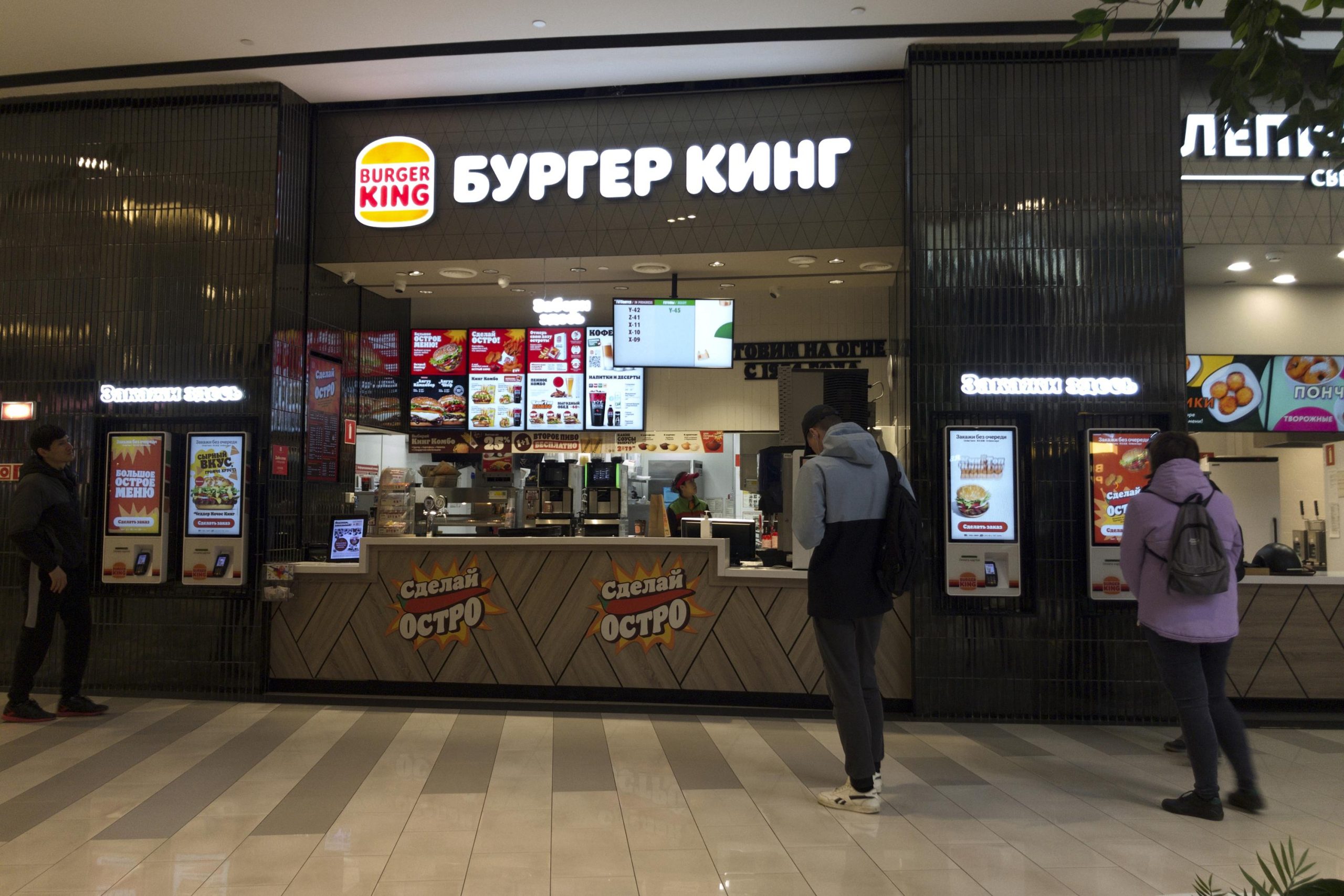Since the Russian full-scale invasion of Ukraine began in 2022, over 1,000 companies have publicly announced they are voluntarily curtailing operations in Russia to some degree beyond the bare minimum legally required by international sanctions. The monitoring is made by a team of experts from the Yale Chief Executive Leadership Institute (CELI) and covers over 1,500 companies, mainly from Western or NATO and G7-aligned countries.
After Russia's military offensive, billions of dollars worth of factories, energy holdings, and power plants were written off or put up for sale, accompanied by fierce condemnation of the war and expressions of solidarity with Ukraine. A report by AP concludes that leaving Russia was not as simple as the first announcements might have made it seem." Increasingly, Russia has put hurdles in the way of companies that want out, requiring approval by a government commission and, in some cases, President Vladimir Putin himself, while imposing painful discounts and taxes on sale prices. Though companies' stories vary, a common theme is having to thread an obstacle course between Western sanctions and outraged public opinion on one side and Russia's efforts to discourage and penalize departures on the other.
According to AP, some international brands such as Coke and Apple are trickling in informally through third countries despite a decision to exit".
Big automakers, oil, tech, and professional services companies led the initial exodus from Russia. BP, Shell, ExxonMobil, and Equinor ended joint ventures or wrote off stakes worth billions. McDonald's sold its 850 restaurants to a local franchisee, while France's Renault took a symbolic single ruble for its majority stake in Avtovaz, Russia's largest carmaker.
Since the initial wave of departures, new categories have emerged: companies biding their time, those struggling to shed assets, and others attempting business as usual. The Kremlin keeps adding requirements, such as a "voluntary" 10% departure tax directly to the government, plus an understanding that companies would sell at a 50% discount.
In July 2023, Russia took control of the Russian subsidiaries of yogurt maker Danone and beer company Carlsberg, as the units were put in "temporary management" of the state under an order signed by Russian President Vladimir Putin. These new rules allow Moscow to seize firms' assets from "unfriendly" countries. Danone and Carlsberg were in the process of selling their Russian operations at the time of the expropriation.
Companies are lost in "a Bermuda Triangle between EU, US, and Russia sanctions," said Michael Harms, executive director of the German Eastern Business Association. They must find a partner not sanctioned by the West. In Russia, major business figures are often "well connected with the government," Harms said. "For one thing, they have to sell at a large discount or almost give assets away, and then they go to people whom politically we don't like — people who are close to the regime."
The 10% exit tax mandated by Russia is particularly tricky, as American companies have to get permission from the Treasury Department to pay it or run afoul of US sanctions.
Mark Galeotti, director of the consultancy firm Mayak Intelligence and Senior Associate Fellow at RUSI, says on Twitter that the economic sanctions imposed on Moscow bring damaging effects for the Russian economy, albeit slow." In a sanctioned environment, the market is not fungible. In other words, just because Company A is no longer selling you widgets, it doesn't mean you can simply switch to Company B. Russian supply chains are thus seriously disrupted, often by a single link in that chain. Its car industry is in crisis, for a while in effect producing cars to 1980s tech, because it could not source airbag and GPS tech. (...) The damage being done to an economy that hitherto prospered because of its deep connections to global markets, tech and investment, as well as great human capital, much of which has fled, is deeply scarring and will take years to heal, even after the sanctions are lifted", argues Galeotti.










Trackbacks and Pingbacks